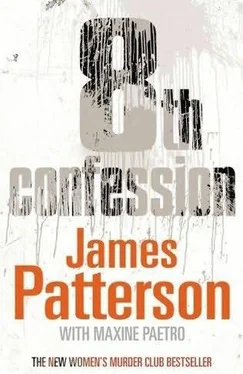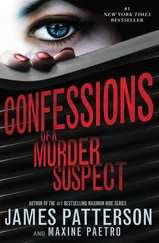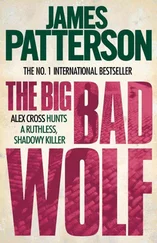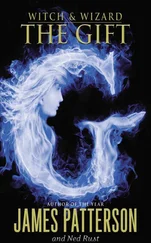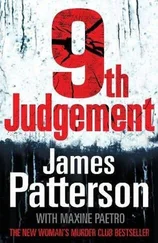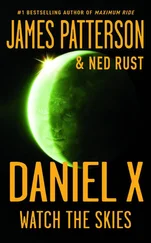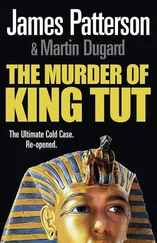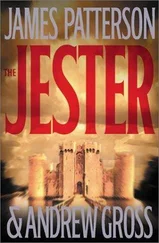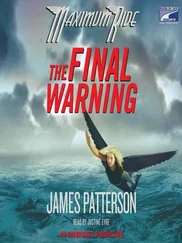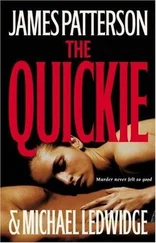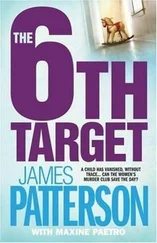Which meant that she was out of her league.
She called a number she knew by heart. “Rich,” she said, “we’ve got to talk.”
CONKLIN FOUND SKIP WILKINSON at MacBain’s, one hand in a bowl of peanuts, the other around a mug of freshly drawn brew. Wilkinson was a skinny kid with a buzz cut, went to the academy with Conklin. He was now in Narcotics and Vice, or as he called it, “Drugs and Whores.”
“So you want to talk about Bagman?” Wilkinson said.
“Anything you can tell me. He’s a homicide that’s going cold.”
“Yeah, well, I can’t tell you too much. We had a few brushes with him. He was strictly a small-time drug dealer.”
“What kind of drugs?”
“Crack. I brought you his file.”
Wilkinson lifted a dog- eared folder out of his battered briefcase, passed it to Conklin. “We never had enough probable cause to arrest him. Sickening, what he was doing.”
“What was that?” Conklin asked. There was no arrest sheet, no mug shot, just handwritten notes stapled to the back of the folder marked BAGMAN JESUS. They hadn’t known his name.
“He was turning teenage girls into pushers. He had a network of them. Sent them out on the street to sell. I’m not sure he wasn’t having sex with them all.
“This is all from street talk, not reliable sources. So we planted a couple of female cops on the street, waited for him to take the bait, but he didn’t do it.”
“And you gave up? Look, I’m not being critical. We haven’t had time to work his murder more than a handful of hours -”
“We didn’t quit,” Wilkinson said. “But as I said, Conklin, he was small-time. Crack is bad, but we’re being overrun by meth, which is far worse. Kids were making it in their basements. It was easy and cheap, but since the crackdown on ephedrine, meth has become big business.
“It’s huge, going out of control. Organized crime is getting involved. The stuff is streaming in from Mexico. I don’t mean to chew your ear off, but it’s getting away from us. And it’s killing good kids. One hit, and they don’t stand a chance.”
Conklin said, “So Rodney Booker was a crack dealer. We didn’t have that.”
“We would’ve landed Bagman eventually, but we had bigger dogs to worry about. And then someone got to that bastard first. And I say great. Glad they took that fucker down and made sure he was down for good.”
AT JUST BEFORE EIGHT on a gray morning, Cindy stood between me and Conklin, pointing her finger in the direction of a young woman striding up Fifth Street.
“That’s her. Red shirt, blond braid. That’s Sammy.”
Sammy heard her name, turned her head, saw Conklin sprinting toward her, and took off like she had jets on the heels of her shoes. She flew off the sidewalk and into the street, ducked in front of a fish truck that was accelerating as the light turned green.
I thought the truck might have clipped her – but the gears ground into third and the truck sped up as Conklin rounded the tailgate. I was running, too, slipping through openings in the clogged street and sidewalks, barking out, “Police! Step aside!” as I ran.
I could hear Conklin huffing, that’s how close I was, when a crack in the sidewalk grabbed the toe of my shoe and I went down. My breath left me.
I staggered to my feet, and then a citizen pointed the way. By the time I caught up with them, Conklin had boxed Sammy into an alcove between two buildings, was yelling to the wide-eyed and panting kid, “Stop running and listen.”
A cluster of homeless people rose up from the sidewalk outside the soup kitchen, some sidling away, others circling around Conklin and Sammy. It was a menacing crew, and there were a lot of them. I flashed my badge, and the grumbling crowd backed off, gave us room.
“We want to talk to you at the station,” Conklin was saying to the girl. “You’ll come in, be a good citizen. Understand? Cooperate, and we won’t book you.”
“No. I don’t understand. I haven’t done anything.”
“See, I want to believe you,” said Inspector Conklin of the melting brown eyes. “But I don’t.”
TWENTY MINUTES LATER, Sammy, last name still unknown, sat across from us in Interview Room Number One, the video camera peering from its spider perch in the corner of the ceiling.
Sammy had no ID, but she admitted to being eighteen. She was legal, and we could question her. I’d done my best to befriend her, tell her I understood why she was frightened and offer her assurances, but the kid wasn’t buying it.
Her answers were evasive, and Sammy’s crappy attitude told me that she was hiding something big. And as pissed off as I was, I had a growing sense that whatever she knew could help us clear the Bagman Jesus case – maybe today.
The sullen teenager had dark circles under her eyes and the hollow cheeks of a meth addict going through withdrawal. She tore open a roll of Life Savers and ground the candy between her molars. I smelled Wild Cherry, and for the first time, I could swear I smelled her fear.
Was Sammy afraid that Bagman’s killer would come after her if she talked? Or was she implicated in his death?
I tried again, nicely. “Sammy, what’s bothering you?”
“Being here.”
“Look, we’re not trying to scare you. We’re trying to find out who killed Bagman. Help us, and we’ll make sure nothing happens to you.”
“Oh, like that’s the problem.”
“Help me understand. What is the problem?”
The tough-girl mask dropped.
Sammy shouted, “I’m just a kid! I’m just a kid!”
That got to me and made me want to back off.
Instead, I bore down. I took off my jacket so that Sammy could see my gun.
I said, “Cut the crap. Tell me what you know, or you’ll be spending the best years of your life in prison as an accessory after the fact in Rodney Booker’s murder.”
Conklin went along. He deferred to me, called me “Sergeant,” made his eyes hard whenever Sammy looked to him for help.
We never gave the kid in her a chance.
CONKLIN HAD TOLD ME that Bagman had a network of girl crack dealers, but I hadn’t envisioned a girl like Sammy: still pretty, well-dressed, a white girl who spoke as though she’d had a family-values upbringing and a good education.
How had Bagman gotten his hooks into her?
When I leaned on Sammy, she teared up, so Conklin pushed a box of tissues across the table. Sammy dried her eyes, blew her nose, gulped some air.
And then she started to talk.
“We sold crack, okay? Bagman paid us with crystal, and we used it with him. Spent days and days blowing clouds, not eating or sleeping, just having out-of-control sex!” she shouted into my face. “These outrageous orgasms, ten, twenty times, one on top of the other -”
“Sounds great,” I said.
“Yeah,” Sammy said, missing the sarcasm. “Unreal. Then he’d drive us to work, and when we’d made our numbers, we’d come home to Bagman Jesus.”
“How many girls are ‘we’?”
Sammy shrugged. “Three or four. No more than five living in the house at any one time.”
“Write down their names,” Conklin said, bringing the girl a pad and pen. Sammy came back to earth, gave Conklin a look meaning Are you crazy?
I asked her, “What do you mean, ‘drive us to work’? Drive what?”
“Bagman had a van, of course.”
Sammy’s voice was starting to crack. Conklin went out of the room, returned with a high-octane cola, and handed it to the girl, who drained the can in one long swallow.
I thought about Rodney Booker, the handsome man who’d gone to Stanford and joined the peace corps, then taken a hard turn into the drug business, giving it an original and especially cruel twist.
Читать дальше
